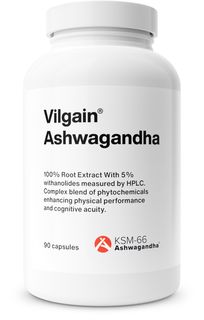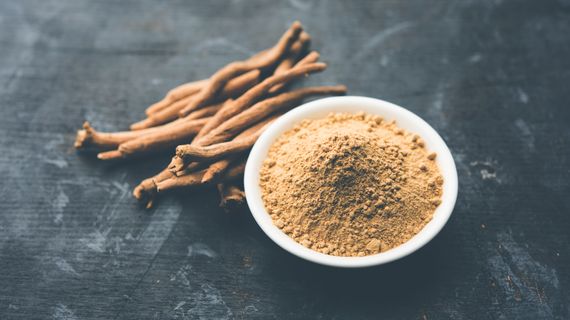What is ashwagandha?
Ashwagandha, also known as ashvaganda in English, is one of the most important herbs in traditional Indian medicine. For 3 thousand years this adaptogen has been used to relieve stress, increase energy levels or improve concentration. Nowadays, due to its high content of health benefits, this plant is seen as a superfood.
Effects of ashwagandha
The popularity of ashwagandha is due to its proven positive effects on the human body. Ashwagandha acts as a stimulant a antioxidant, anti‑inflammatory and has a positive effect on the immune system. In addition, it can:
- reduce stress levels and feelings of anxiety,
- support brain function,
- improve sports performance,
- positively affect sexual health,
- regulate blood sugar levels, or
- improve sleep.
Ashwagandha is considered a safe dietary supplement, but rarely may cause drowsiness or digestive problems. Taking ashwagandha together with medications should be consulted with a doctor or other professional.
Dosage of ashwagandha
Ashwagandha is most commonly available in powder form, but the amount of active ingredients cannot be guaranteed. A more effective option is standardized extracts, of which the highest concentration of active ingredients is achieved by the patented KSM‑66 extract, which also boasts Vilgain Ashwagandha. For extracts, the recommended daily dose ranges from 250‑500 mg. To observe positive effects, ashwagandha should be taken for 1‑2 months, at any time of the day, ideally with meals.
Supplements with ashwagandha are also available in capsule and tablet form, as well as in Organic quality.



